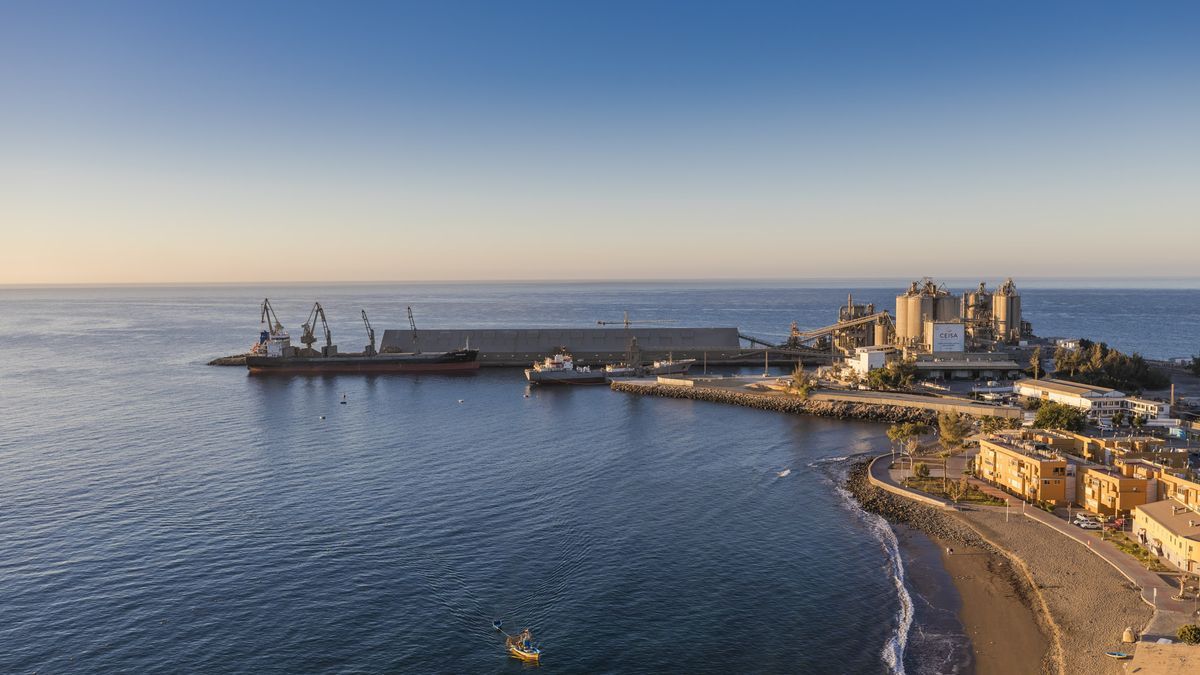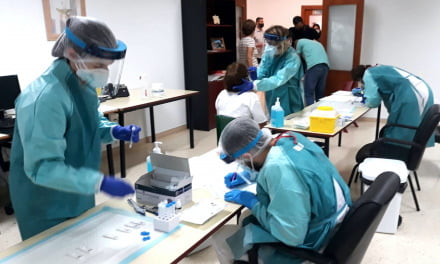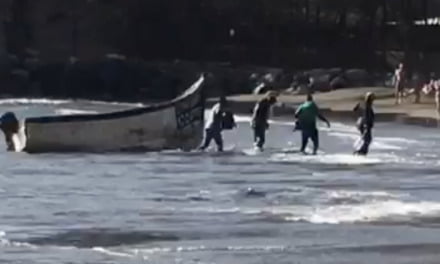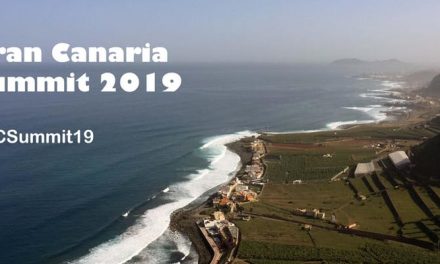The general director of hoteliers, the Cordial group, a member of the Las Palmas tourist association, Nicolás Villalobos, has described as “illegal” the decision taken by the Canarian Regional Government to extend the usage of the deep water port of Santa Águeda so that the cement company CEISA (Cementos Especiales de Las Islas SA) can continue to operate beyond its concession which expired last October. <!–more–>
A PIO review document, approved by the Cabildo, was published on December 29, and the Government’s decision on the future of this port was adopted last summer, said the director of Cordial, a tourism group that has accommodation establishments in the area, and that both the 2003 PIO and the one approved by the island corporation in December make it clear that the entire piece of land, known as Santa Águeda, and around the mouth of the Arguineguín ravine has been designated for tourism use. According to Villalobos, the document also provides that once the concession for the use of the port by the cement company ends, this port infrastructure will be converted for tourism.
Given this, he added that “the Government cannot act in a discretionary and arbitrary manner, oblivious to what is indicated in the Gran Canaria Island Development Plan.”
50 year port concession has now expired
 In the months leading up to the CEISA 50-year concession’s expiry, a debate was generated in which Cordial bosses quoted a previous opinion, commissioned by the Canarian Government, which had concluded that the date of occupation of the port of Santa Águeda would actually expire back in March 2020 and not on October 28, 2022 as was applied by the regional port authority Puertos Canarios, leading Cordial to unsuccessfully attempt to have the courts support the cement company’s removal from the port. Despite the case for CEISA’s early removal being thrown out, Villalobos continued to push for a decision prior to the end of October and now points out that it is “indisputable” that the concession has expired, saying that to this day the cement company continues to occupy land that is in the public domain without having any concession title, pointing out that legally there is also no option for it them obtain a new permit or extension to continue in the port of Santa Águeda.
In the months leading up to the CEISA 50-year concession’s expiry, a debate was generated in which Cordial bosses quoted a previous opinion, commissioned by the Canarian Government, which had concluded that the date of occupation of the port of Santa Águeda would actually expire back in March 2020 and not on October 28, 2022 as was applied by the regional port authority Puertos Canarios, leading Cordial to unsuccessfully attempt to have the courts support the cement company’s removal from the port. Despite the case for CEISA’s early removal being thrown out, Villalobos continued to push for a decision prior to the end of October and now points out that it is “indisputable” that the concession has expired, saying that to this day the cement company continues to occupy land that is in the public domain without having any concession title, pointing out that legally there is also no option for it them obtain a new permit or extension to continue in the port of Santa Águeda.
CEISA have pointed out that they own the land on which their factory operates, which is just a kilometre or so from the lime quarries from which they obtain their raw materials, and so even if they did not have access to the port they would, in all likelihood, continue to operate their manufacturing processes at the site, but would be forced to transport their product by road, instead of by sea, which could put hundreds of extra trucks on the road to and from the factory, with clear implications for traffic and emissions.
It has also been made clear that were CEISA to stop operations there would severe shortages in cements and mortar required throughout the islands as there are few, if any, facilities that can fabricate and distribute these products on the same scale. The location of the factory and the port, and their proximity to the lime quarry, are a vital part of the business model, if that all has to change then, simply put, the price and availability of these materials, required for the construction industry, will also be seriously affected.
The Canary Islands government have suggested that CEISA could move their operations to the port of Arinaga, on the south east coast, but recognise that this process might take 6 years or more to create an alternative industrial manufacturing site and the question of where they would obtain raw materials would also have to be resolved, as if they continued to use the Santa Águeda lime quarry the result would be the same, with trucks having to transport the lime to the factory.
 Tourism entrepreneurs, including Cordial, have already appealed against the decision of the Canary Islands Government, through contentious-administrative proceedings, and opposing industrial use being alternated or continued alongside sports or tourism for a period of between six and eight years, while port facilities are set up in Arinaga. While they await a judicial resolution, and in the face of what he called “the alleged arbitrariness of the autonomous government”, Villalobos has made clear that they do not rule out requesting protection from the courts of the European Union.
Tourism entrepreneurs, including Cordial, have already appealed against the decision of the Canary Islands Government, through contentious-administrative proceedings, and opposing industrial use being alternated or continued alongside sports or tourism for a period of between six and eight years, while port facilities are set up in Arinaga. While they await a judicial resolution, and in the face of what he called “the alleged arbitrariness of the autonomous government”, Villalobos has made clear that they do not rule out requesting protection from the courts of the European Union.
Gran Canaria has no specific plan for the El Pajar port
However, if should be noted, the current planning by the Cabildo de Gran Canaria for the next 25 years does not yet include this deep water pier among their to do list of actions considered as priorities for port facilities, whether for tourism or sports usage, but instead contemplates it simply as one proposal for the future, a future that will depend on the concession to the cement factory. Future planning does yet include the possibility of reordering all that space through a specific territorial plan, which would be necessary long prior to any other actions being taken.
The cement company was installed in El Pajar back in 1957 and was built by the Del Castillo family, that of the Counts of Vega Grande who still own most of the lands on the south of the island. The factory and the land it sits on was later acquired by CEISA, on whose board members of the Del Castillo family have sat. This conflict appears to primarily have arisen because the Cordial group decided to develop a new hotel complex on another adjacent piece of lan, also owned by the family of the Count, in anticipation that the PIO included the sporting use of this port and would therefore serve their investment interests moving forward.
It seems however that the road ahead is a lot more complex than they appear to have envisaged, with competing interests between the Del Castillo family, tourism entrepreneurs, vital infrastructure and industrial manufacturing as well as a long standing business, supported by local residents who believe that there is already too much of their coast line given over to tourism, and a town hall who see great value in retaining this unique enclave which has yet to be over run by visitors seeking holiday services and hospitality. None of this is likely to be resolved any time soon.










